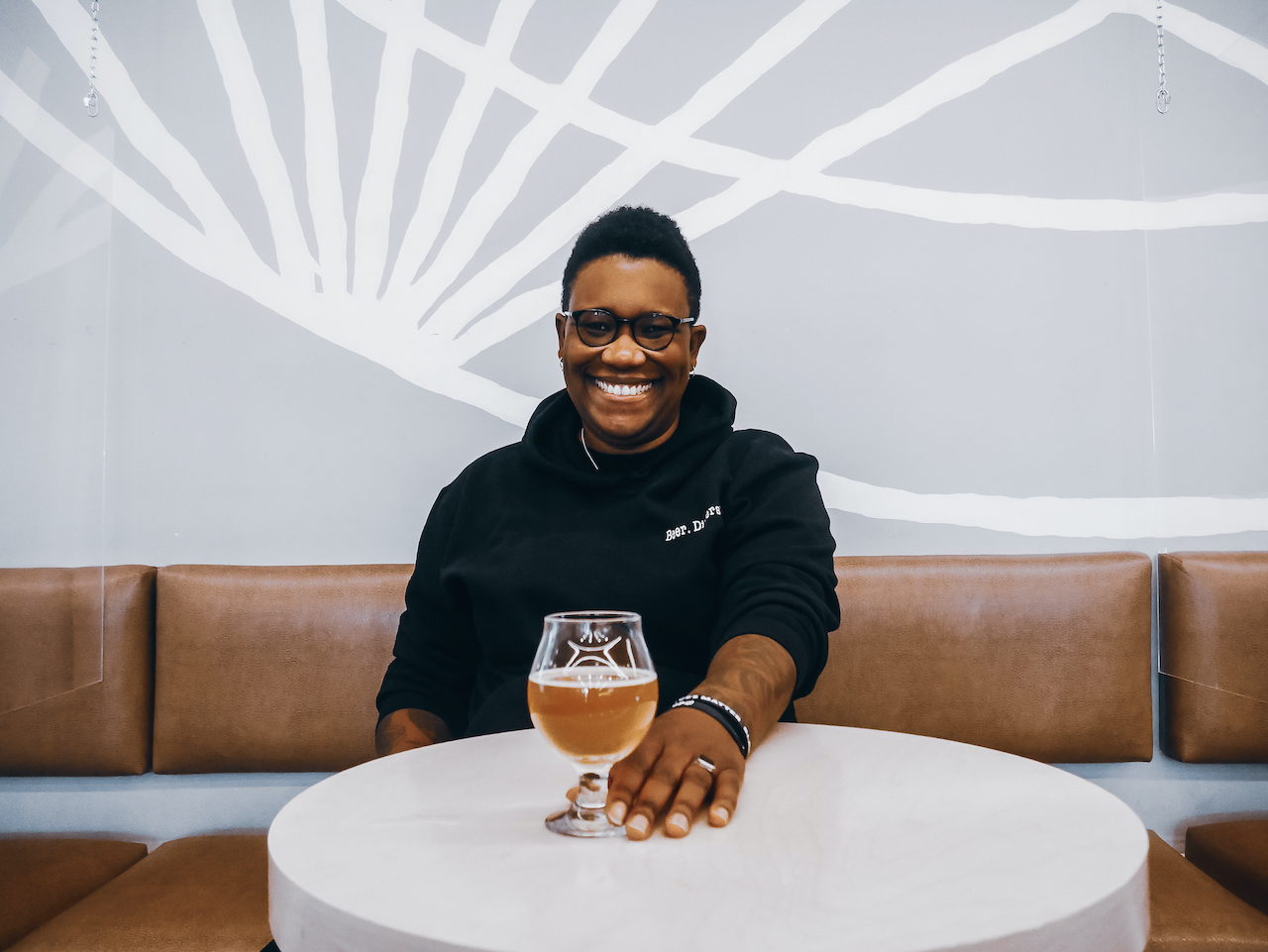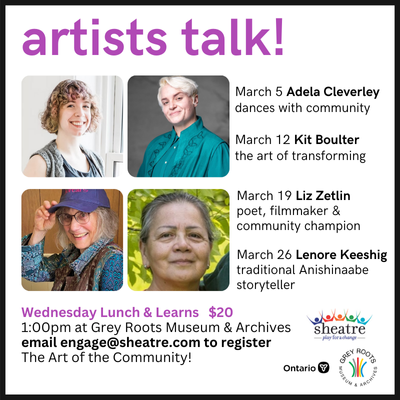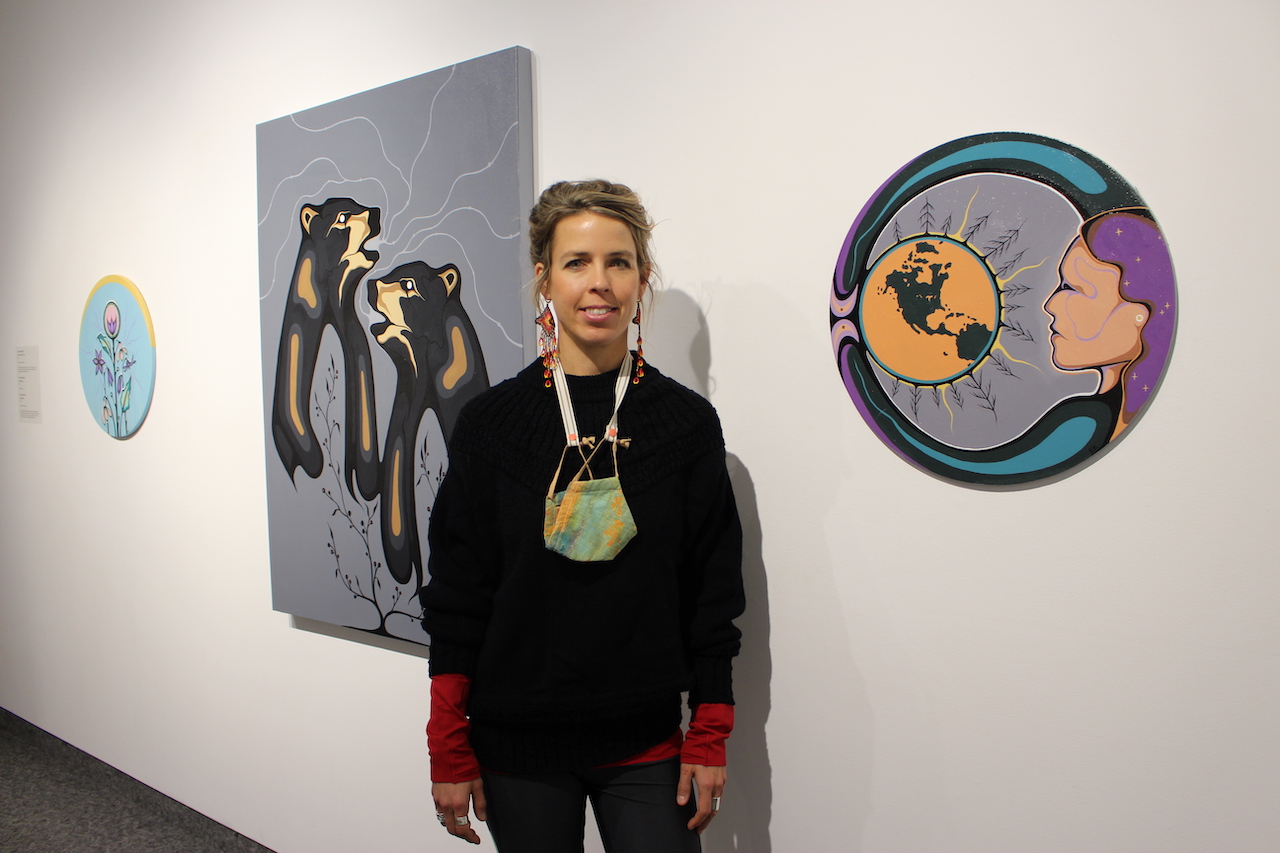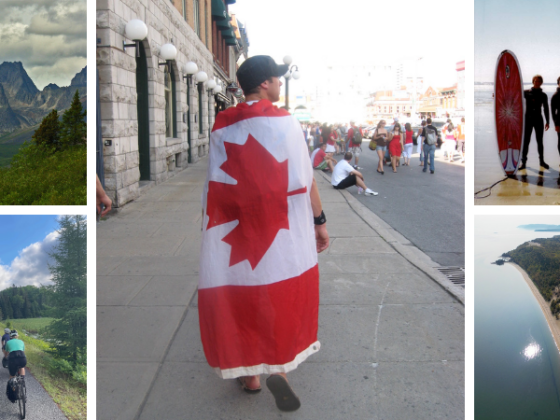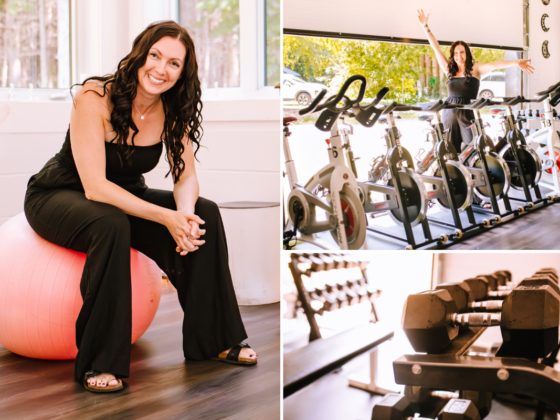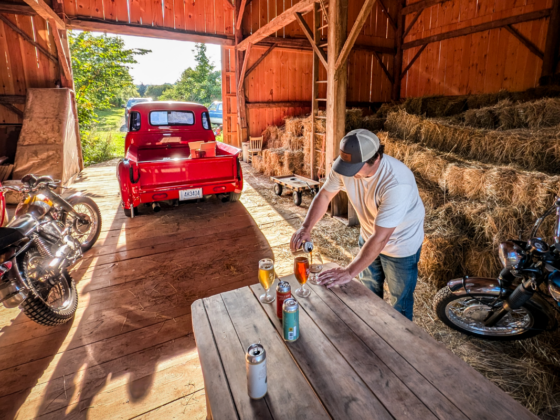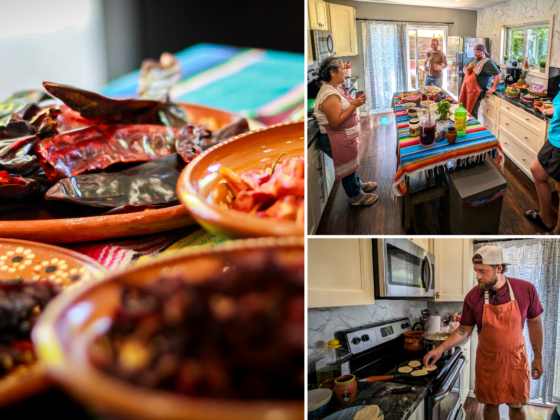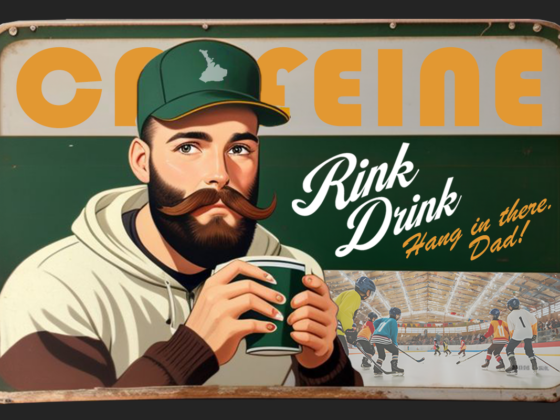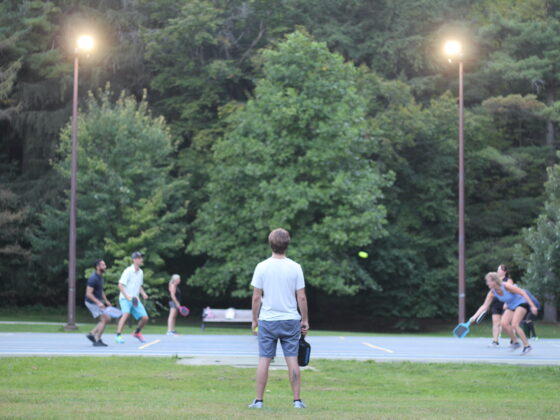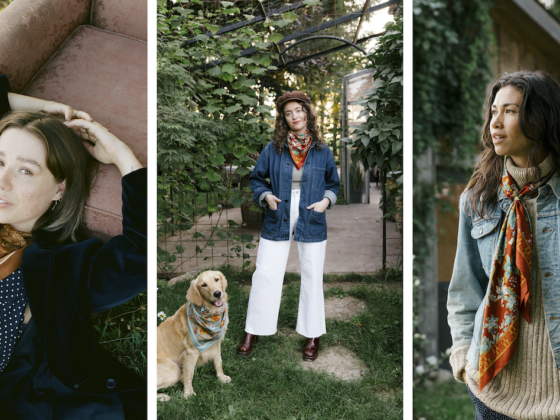If the past year has shown us anything, it’s that the world is changing. The Black Lives Matter movement has encouraged critical self reflection. Many are realizing that there is a lot of room for improvement. And it’s not just people that are studying their biases and prejudices. Businesses big and small are also adjusting their habits and striving to better themselves. We spoke with Ren Navarro from Beer. Diversity. to discuss how the folks in the beer industry are adapting to the new landscape.
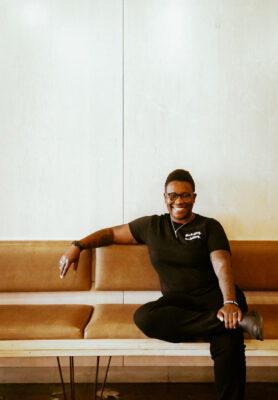
What about craft beer captivated you enough to make it a career?
It’s been a few years, but it was really hanging out at certain restaurants and certain bars and starting to see the range of different kinds of beers. This would have been ten, twelve years ago. In Toronto, there’s a bar called WVRST, a sausage and beer bar. They used to do Beer 101, where they’d bring in different breweries once a month on a Sunday and they’d pair it with their different food. This was also the first time I’d seen beer paired with food, and they were bringing in an array of breweries, and a majority of them were craft beer. It was really lovely to have someone who was passionate about the product and just being open to hearing your questions and helping you relate to things. I think that was kind of the start of “Oh, there’s something out there!”
At that point I was more of a macro drinker, and hadn’t been a beer drinker a very long time. Wine was really my interest for the longest while, so it was nice to see something different.
Beer. Diversity. wasn’t the first thing you’d done in the industry. How did you make the switch?
I worked retail in breweries and was a sales rep for a bunch of years for a bunch of different breweries, sort of moving through different breweries in Ontario.
Beer. Diversity. will be three this May, and it was one of those things I kind of fell into. It was just highlighting the kind of people that you want drinking beer, and the kind of people you want working in breweries. So it was kind of this happy accident that took off fairly quickly and was well-received.
When you consult with a brewery, do they usually have a list of goals outlined that they’d like to achieve? Do you help pin down a road map, or is it a little more collaborative?
It’s a collaborative effort. I think that breweries kind of have their ideas of what they want. Usually they want more diversity in their workforce, or more diversity in their clientele. So, between us getting together and talking, and having these open dialogues, and allowing them to have questions that they usually can’t ask because they don’t know who to ask all these questions of.
That collaborative nature helps create a groundwork, but also helps them figure out what they’ve been doing right, and things that they can tweak a bit. Because when we talk about the problem of diversity and inclusion, it’s not a thing, it’s people. Not that you’re fixing people, you’re just trying to look at things a little differently. I think having it so open and so collaborative helps to make that change, and helps people see “Actually we did this right, but we just didn’t think it was important, so we didn’t look at it the way we should have.”
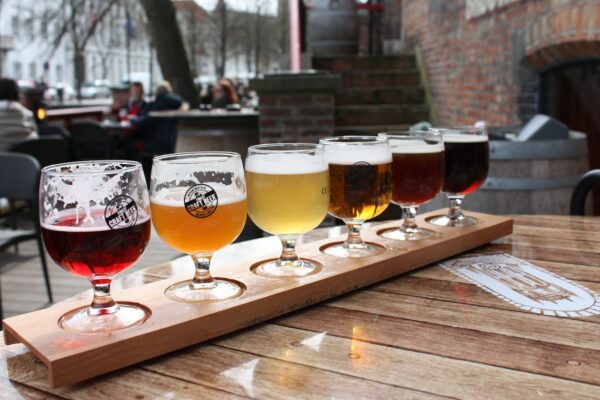
I think that breweries are in the middle of it. You’re running a business, you have staff, you have to get this product out, you have to QC. There’s all these things, and there’s no time to just stop.
That’s where I come in to say “Okay, let’s organize your thoughts, let’s organize your questions, and organize your wishlist.” That way we can try and figure something out.
What are some of the questions that you find cropping up again and again during your consultations?
Quite often, it’s about hiring a more diverse staff, and the question of appealing to a diversity of patrons. And also just getting them to define it. Quite often people forget that diversity is not one group, that’s not the definition. With what’s been happening in 2020, usually the diversity that they want is predominantly black or BIPOC folk. But is that what’s in your community? You can’t say “I want black people working here” if you have one black family in your community, they’re probably not going to work for you. So I help them focus and to define what they really want, but also to define the words that they just kind of throw around.
Have you noticed a difference in response today versus a year or two years ago with the events of 2020?
Places that didn’t think they had a problem two or three years ago are now seeing that the world has a problem. So they need to reevaluate what they’re talking about. And they’re fine with the product, the beer is great, they’re making it fine, and they can let that chug on the way it is.
But it’s about appealing to a broader sense. So, breweries are now looking at communities and their values. And we’re not talking about company values like “Our company strives for whatever.” Who are the people? What are your values? And what makes you a great place?
I think there’s a shift and a push towards wanting to go into places where you feel welcome and safe, and then you think “by the way, the beer’s great!” And the events of the past — what feels like forever — but the past year have made that the focus now.
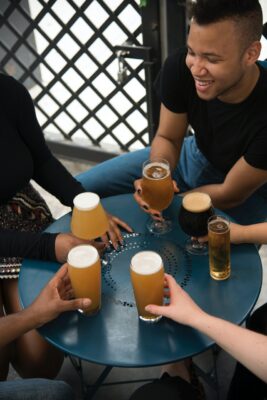
What do you find are the major barriers that have resulted in a lack of diversity in the industry?
I think it’s fear. Some of it’s ignorance, and some of it’s that they didn’t know. That education’s missing. A lot of places are like “If it ain’t broke, don’t fix it.” And again, in the last year, they’re starting to take a look and see that some breweries are doing it right all the time, then maybe they should try it. And so I think that’s the big piece: People are afraid to fail, so the fear freezes you, and so you just never do it, and you never try.
But if you’re brewing and you mess up your brew, you don’t quit, you learn from it and you restart. So it’s the same approach!
Are there any specific challenges in the beer world that aren’t as common in other industries?
I don’t think so. We try to pretend that craft beer is so different, but it’s the same problem across the board. Take the word Beer out and put whatever industry you’re in, and it’s the exact same problem. I don’t want to be flippant about it, but beer’s not that special! It’s the same problem everyone else has, but I think beer just has this reputation and this image. There are still so many stereotypes attached to it about who craft beer drinkers are, and what they look like.
But there’s no difference or limitation anyone else wouldn’t be seeing in their own industry
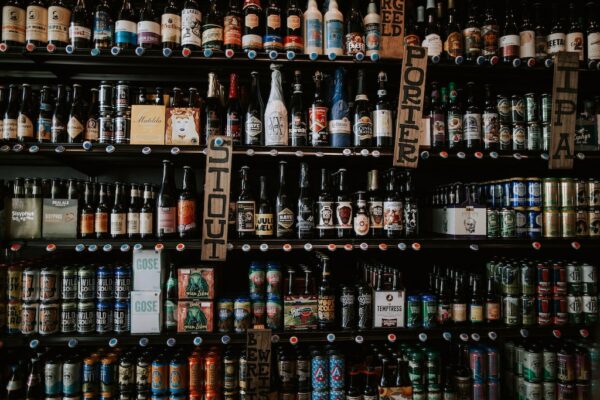
Are there any examples of breweries that are getting it right that make you hopeful for the future of the industry?
Yeah, there are a lot! I’m in Kitchener, and I think of Short Finger, and TWB, and Counterpoint, who are doing a lot, not just with beer, but with their communities, and using their positions to be able to highlight others.
Block Three has been doing some great stuff.
Dominion City in Ottawa.
Grey Matter in Kincardine has been doing some fantastic stuff, too.
It’s just about taking a stance, and saying that we as people believe that everyone should have a right, and we’re very proud of the community we’re in and here are the things we do to highlight the community.
How can we as consumers and beer drinkers make craft beer drinking a more welcoming hobby?
I think that just talking about your favourite beers and breweries with people and highlighting positive things that they’re doing in the community. Again there’s this feeling that people who are drinking craft beer are just like, hanging out in their basements being weird, and being fancy and using all these bizarre words about it, when it’s about showing that there are charitable aspects within. Yeah, it’s Covid time, and you’re not getting together in groups — You better not be getting together in groups!! But when you’re talking to someone who isn’t into beer, don’t just say “You won’t understand it” Have a dialogue about it! And explain some things. Pass your knowledge on. Even if it’s not huge beer knowledge, you know what you like. Just be patient and show that these things can be welcoming. It’s just being able to shine a spotlight on the fact that breweries aren’t just about beer, they’re about people and communities.
To find out more about Ren and the work she does, you can follow Beer. Diversity. on social media, visit her website at beer-diversity.com, or even listen to her podcast Ren Likes to Talk.
Interview by Andy Elliott

